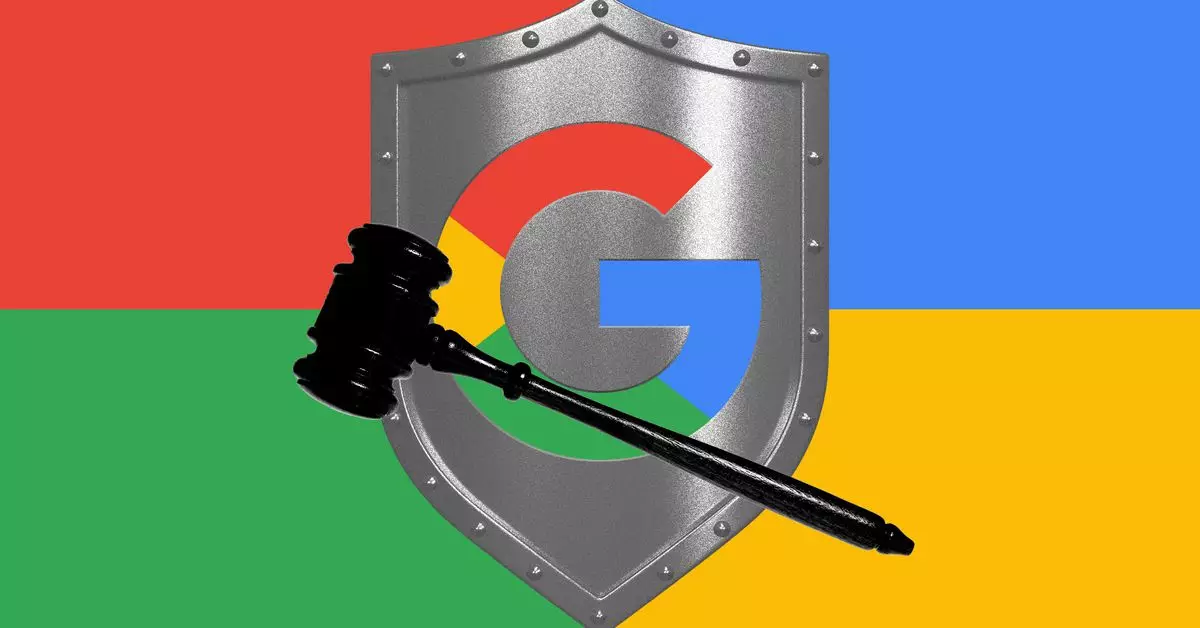The ongoing legal skirmish between Google and the U.S. Department of Justice (DOJ) showcases a pivotal moment in the dynamic landscape of digital competition. This cornerstone case encapsulates the broader struggle against monopolistic practices within the tech industry, with far-reaching implications for consumers, innovation, and market dynamics.
In the wake of a landmark ruling that determined Google unlawfully monopolized online search, the DOJ has proposed a comprehensive strategy aimed at reshaping how Google operates its search business. Its aggressive agenda requests an array of significant changes, including the divestment of the Chrome browser and the potential separation of Google’s Android platform. By aiming to dismantle Google’s entrenched position, the DOJ is not merely looking to punish the tech giant; it seeks to foster a healthier competitive environment free from restrictive practices that inhibit rivals.
The DOJ wants Google to cease exclusive arrangements that ensure its search engine is the default option on devices, particularly agreements with powerhouse brands like Apple, which have long ensured Google’s supremacy in the search market. Such moves, if enforced, promise to transform the digital interface through which millions interact with information online, ideally leading to a more diversified and competitive ecosystem.
In response to the substantial demands made by the DOJ, Google has put forth its own streamlined proposal aimed at addressing key concerns without dismantling its entire business model. The tech giant has suggested an easing of the restrictions, advocating for a three-year ban on default search placements rather than the extensive, decade-long oversight proposed by the government. By curtailing placements just for three years, Google aims to preserve its control over its services while allowing for some degree of competition.
This proposal includes measures to prevent Google from bundling its search engine with Android devices and obligates the company to refrain from requiring manufacturers to exclude rival search engines. However, the limitations set forth in Google’s counter-proposal fail to address some of the broader issues identified by the DOJ, leading to speculations about whether these acts signify a strategic maneuver to maintain the status quo under the guise of compliance.
If approved, Google’s counterproposal will fundamentally alter market dynamics, but it remains less transformative than the changes envisioned by the DOJ. Although Google’s proposition may seem like a step toward cooperation, critics argue it does not sufficiently level the playing field for competitors. It allows Google to sustain its existing dominance while claiming to comply with the court’s findings.
Moreover, Google’s argument for minimal changes rests on the assertion that the pace of innovation is rapid within the tech landscape. By restricting regulatory measures, Google posits that it can continue to drive advancements and remain competitive. Yet, skeptics question whether this rationale may lead to stagnation for smaller companies that rely on a fair marketplace to innovate.
Google’s legal stance and its proposed adjustments to business practices evoke mixed reactions from the competitive landscape. For instance, DuckDuckGo, a challenger in the search engine arena, perceives Google’s proposal as a tactic to preserve the status quo rather than a genuine effort to address monopolistic flaws. Such criticisms are emblematic of the frustrations felt by various tech firms aspiring to carve out a market share in an environment historically dominated by Google.
In essence, the implications of this ongoing litigation extend beyond Google and the DOJ. They represent a pivotal moment for the technology sector, where the outcomes can dictate the future of competition, innovation, and consumer choice profoundly. The stakes are high as the court’s judgment could shape regulatory frameworks governing digital markets for years to come.
As both Google and the DOJ prepare to present their positions in Washington D.C., the judiciary faces a complex task. The court must balance enforcing the laws intended to curb monopolistic power with the potential consequences of its ruling for innovation and economic growth. The intricacies involved in this case serve as a crucial reminder of the delicate relationship between government oversight and market freedom.
Ultimately, the repercussions of this landmark case are likely to reverberate throughout the tech industry, influencing how companies navigate their business models in an increasingly scrutinized landscape. As consumers and competitors alike await the court’s decision, one thing is clear: the outcomes will resonate far beyond the courtroom, heralding a new era in the digital marketplace.

